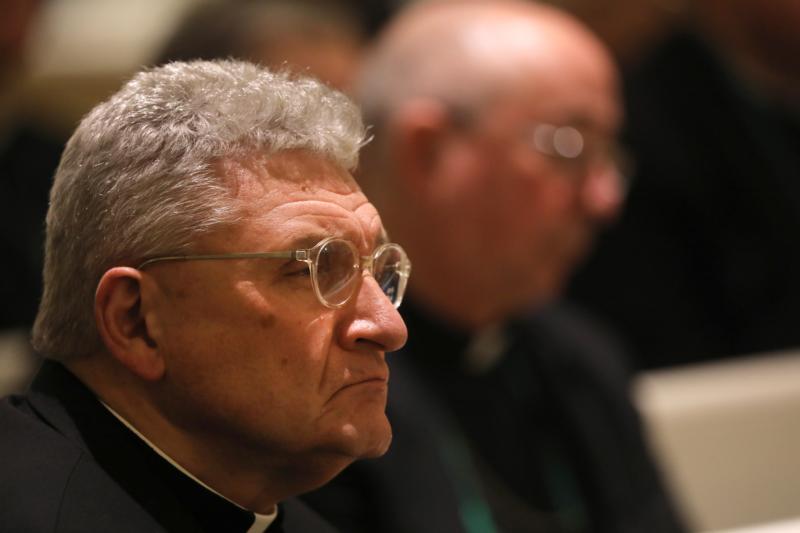By Christopher White, The Tablet’s National Correspondent

NEW YORK – One of the dioceses hardest hit by this summer’s Pennsylvania grand jury report chronicling decades of clergy sex abuse and cover-up has released a five-point action plan for child safeguarding and transparency.
In a pastoral letter released Monday, Pittsburgh Bishop David Zubik said, “the Church is at a watershed moment. This is a time for concrete action that will continue to foster healing and rebuild relationships between all of us.”
Bishop Zubik’s letter, “The Church Healing,” is the result of four listening sessions held throughout the diocese during the fall of 2018. His new action plan will include new support measures for abuse survivors and their families, greater financial transparency, increased accountability, ongoing spiritual and human formation for seminarians and clergy, and ongoing listening sessions.
Effective April 1, the diocese will establish a Secretariat for the Protection of Children, Youth and Vulnerable Adults that will oversee several existing offices and the creation of several new divisions, including the Office for Accompaniment, which will provide spiritual support for abuse survivors, and the Office for Investigations and Monitoring, which will be staffed by a law enforcement professional to oversee inquiries into abuse allegations and monitor clergy removed from ministry.
In an effort to increase financial transparency, the letter also announced that by July 2019 the diocese will release the amount of past victims’ compensation through legal settlements dating back to 1991, which is the earliest record of a settlement. The letter notes that it will not release the names of the victims to ensure their privacy.
Over the next ten months, the diocese will also disclose what it has spent on legal fees related to clergy abuse cases and the amount that it is obligated to payout under canon law to priests who have been removed from ministry due to abuse allegations.
Among the other new initiatives, the diocese has pledged to continue to update its list of clergy accused of abuse and the establishment of a third party reporting system for reporting misconduct by any diocesan official.
“It is imperative that all be held to the same high standards of moral and professional behavior, as spelled out in the diocesan Code of Pastoral Conduct, without regard to rank or title,” Bishop Zubik wrote.
“This includes bishops, priests, deacons, and any lay employee of the diocese, its parishes and schools. Anyone must be able to report misconduct without fear of reprisal,” he writes.
The letter also vows new initiatives to ensure priests are committed to their vows of chastity, which the bishop said was a common concern raised during his listening sessions.
“This includes the imperative practice of chastity and the related obligation not to engage in adult sexual relationships of either a heterosexual or homosexual nature,” he wrote.
Bishop Zubik also announced the formation of a “Church Healing Commission,” a new advisory body to hold him accountable for the new measures announced in Monday’s letter and pledged an ongoing commitment to “Truth and Reconciliation” through eight annual listening sessions.
“While there are many ways that Jesus showed Himself as Savior during the three years of His public ministry, none defines Jesus more poignantly than His mission as healer,” he wrote.
Released ahead of Ash Wednesday, the start of the Church’s annual penitential season leading up to Easter, Bishop Zubik said that his letter was not intended to be the last word from the diocese on the sexual abuse crisis which has engulfed the global Catholic Church over the past year.
“An action plan cannot alone heal the injuries suffered. But I pray that you can trust in my promise that these are the first steps of many that will be taken to restore the Church and to heal the wounds inflicted by sins of abuse,” he wrote.
“Through continued listening and dialogue to seek the best path forward, through pastoral care and advocacy for victims/survivors of abuse and through the healing of hearts and lives, the Body of Christ that is suffering together can also be renewed together,” Bishop Zubik said.
